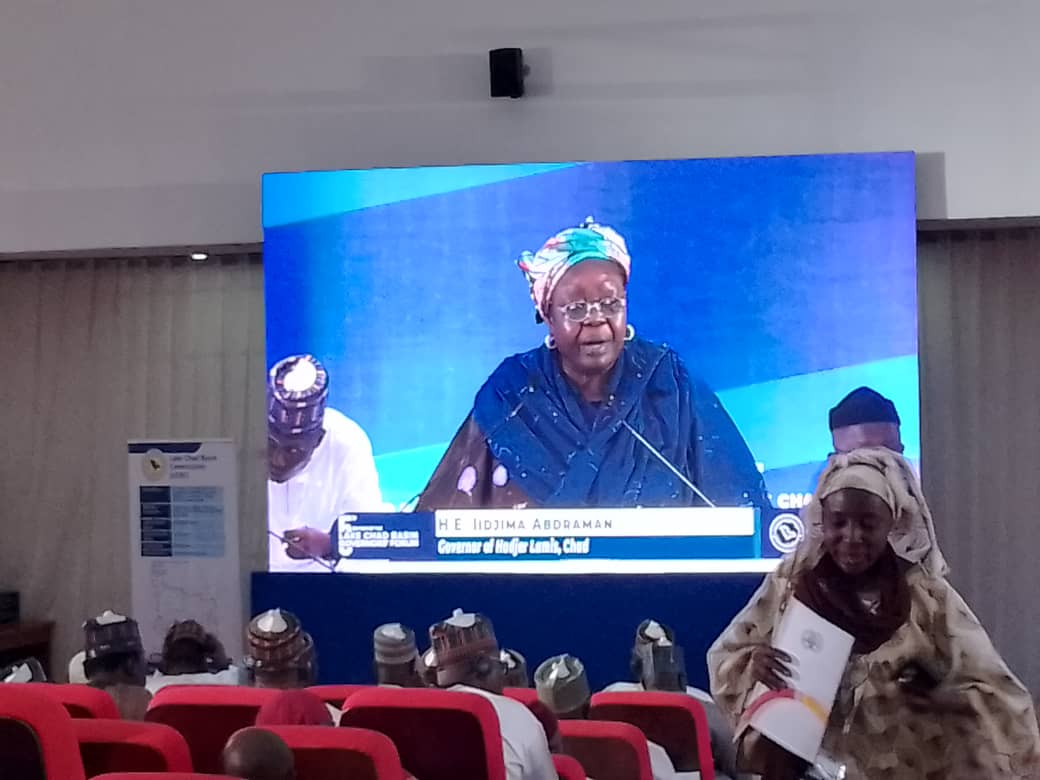BY: FAIZA JIBRIN
The 5th Lake Chad Governors' Forum, hosted by Yobe State Governor Mai Mala Buni in Maiduguri, marked a significant milestone in regional cooperation for stabilization, peacebuilding, and sustainable development.
The forum brought together key policymakers, development partners, and security stakeholders.
One notable aspect of the forum was the significant presence of women among delegates, which contrasts with the region's low female representation in politics.
Among the eight governors of the Lake Chad Basin region, only Governor Ildjima Abdraman of Hadjer Lamis Province, Chad, was a woman. Her leadership as the outgoing chair of the forum highlighted the stark gender imbalance in governance.
Despite women playing crucial roles in humanitarian response, conflict resolution, and community rebuilding, their political presence remains marginal.
Gov. Abdraman's tenure represents a rare breakthrough for women in political leadership in the Lake Chad Basin.
Gov. Ildjima Abdraman's impressive background underscores her leadership capabilities.
She was appointed Governor of Hadjer Lamis Province on February 29, 2024, after serving as the Governor of Tandjilé Province from January 17, 2023, to February 29, 2024. Her political career also includes serving two terms as a Deputy in Chad's National Assembly (1997-2002 and 2011-2021), during which she held the position of Deputy Treasurer in her final term.
Beyond politics, she has worked with several United Nations agencies, including UNDP, FAO, UNICEF, and FUNAP, as a temporary staffer. Her diplomatic experience extends to serving as an Assistant to the Ambassador of Chad in France, as well as holding administrative roles in Chad's Ministry of Foreign Affairs and the Presidency of the Republic from 1976 to 1979.
As chair of the Lake Chad Basin Governor's Forum, Abdraman played a key role in advocating for regional stabilization, recovery, and resilience efforts, particularly in communities affected by the Boko Haram insurgency. Her leadership at the forum emphasized the importance of cross-border cooperation, gender inclusivity in governance, and sustainable development strategies.
However, Gov. Abdraman's presence also highlights a wider issue of gender exclusion in governance across the region. Niger, Chad, and Cameroon, where no other female governors currently hold office, demonstrate the systemic barriers women face in attaining political leadership. Despite their critical role in peacebuilding, humanitarian response, and local governance, women remain underrepresented in decision-making positions.
The need for women to participate more in the politics of the region cannot be overstated. Equal representation is a fundamental aspect of democracy, and women make up half of every country's population, so it's only fair that they have an equal say in decision-making systems.
Moreover, research has shown that women's participation leads to better governance. When women are involved in politics, they bring a unique perspective that prioritizes issues like healthcare, education, and community development. This, in turn, leads to more inclusive and sustainable policies that benefit the entire community.
Another critical reason is that women's participation reduces conflict. Studies have found that higher levels of women's political participation are associated with a lower risk of civil war and reduced likelihood of state-perpetuated political violence.
Women's leadership encourages more women to participate. When women see other women in leadership positions, they are more likely to become involved in politics themselves, creating a positive feedback loop that promotes greater gender equality.
Finally, women's participation is essential for achieving gender equality. The UN's Sustainable Development Goals (SDGs) and the African Union's Agenda 2063 both recognize the importance of women's empowerment and participation in achieving sustainable development and transforming Africa into a global powerhouse.
Increasing women's participation in politics is crucial for promoting democracy, good governance, peace, and gender equality. It's time to break down the barriers that prevent women from participating in politics and create a more inclusive and equitable society.

